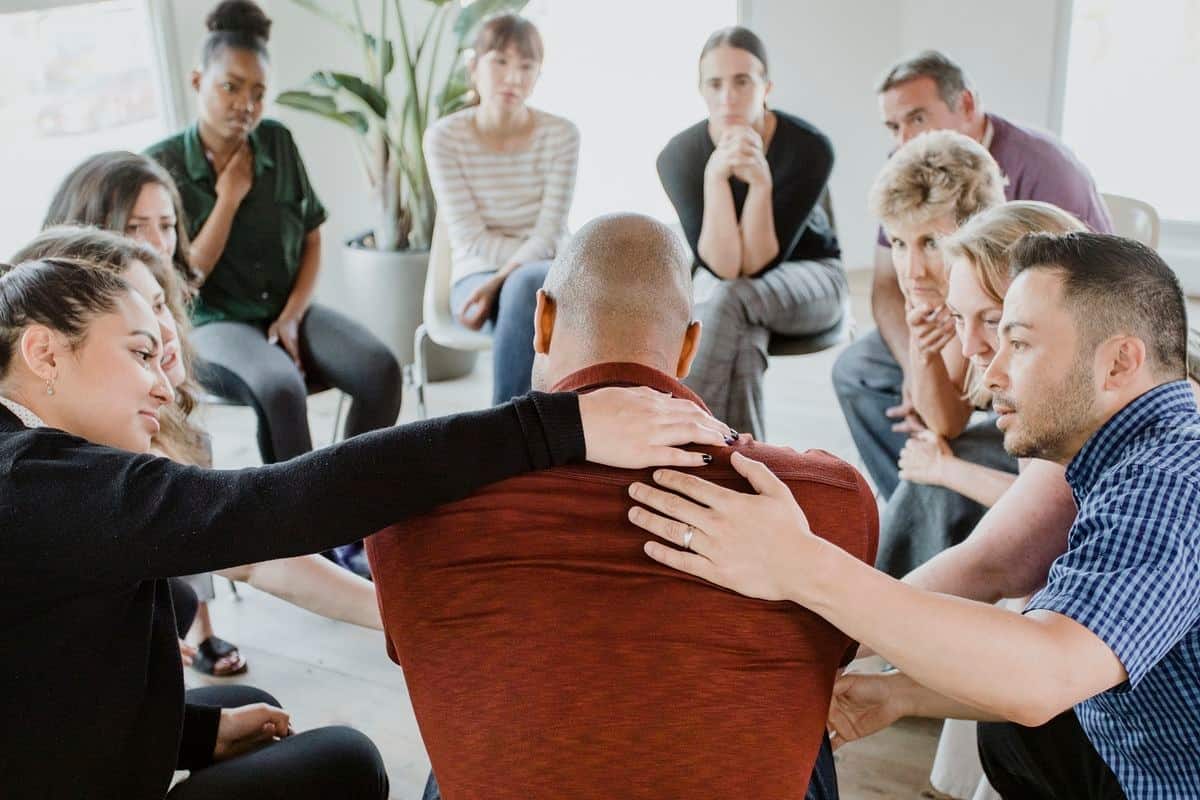Group therapy can be among the best treatments to help you build and restore your relationship with yourself. However, it can be intimidating to open up to others. At face value, group therapy looks like sharing intimate details with strangers, and if you’re not used to being vulnerable, that can seem scary. This article will provide ways to help you engage more during group therapy.
Concerns About Group Therapy
Many of your fears about group therapy are most likely pretty common. You might be afraid of other people judging you. You might be afraid of the details you share leaving the room. You might worry about suddenly being put on the spot and forced to share personal information when you aren’t ready. These are valid concerns. It’s understandable to care about how others think about us because it affects our self-esteem. It’s customary to worry about our boundaries being violated, and it’s normal to be concerned about confidentiality.
First off, it’s essential to know that group therapy is completely confidential. Members engaged in group therapy agree not to share personal information outside of sessions. If a member violates this agreement, they can be removed from the group. Secondly, you aren’t likely to be put on the spot except to introduce yourself to the group. A group facilitator’s job is to create a safe space that honors your boundaries and allows you to build up trust by establishing rapport. Fortunately, this means that you aren’t required to share something you’re uncomfortable sharing. You are entitled to decline if you aren’t comfortable answering a question.
Why It’s Important to Be Open
One of the most critical parts of any emotional therapy is being open about your thoughts and feelings. It can be terrifying if you’re not used to this type of vulnerability. You might hesitate to be honest about your experiences and your authentic feelings. Unfortunately, when you don’t engage openly and honestly in therapy, you end up shorting yourself of potential growth and healing that can come from both group and individual therapy.
There are many benefits of sharing in group therapy. For one, the more you share your experience, the more people can help you and offer accurate feedback. It’s harder to provide sound advice if the critical context is missing. Another crucial thing that sharing provides is understanding your emotions better. You don’t have to completely understand how something made you feel—only describe it to the best of your ability. Instead of ignoring your emotions, you face them and learn about them by relating with others. The third benefit is that it allows you to accept your feelings. You learn by sharing and listening that many things you feel are universal.
Start With Something Small
The biggest fear you probably have is challenging, but you don’t have to share that right away. You can start with something that isn’t as significant and build your comfort and confidence over time. This approach is sort of like dipping your toes in the water instead of cannonballing right in. This approach allows you to gauge reaction and better know what to expect. Pay attention to what other people say and how they react. You may find they share things that are a lot more intimate than you are afraid to share, and you might be surprised by how accepting they are.
Don’t Over Think It
What will cause you to close up is overthinking the “what ifs.” It’s normal to feel a little worried about a scenario, but it’s also possible to worry too much. Anxiety is prevalent, especially among people who struggle with addiction and mental health. There is a chance that you are overthinking what will happen if you are open. After all, it’s how you protect yourself from potential danger. However, when dealing with these emotions of worry and fear, remember that their purpose is to alert us of potential risk and assess how imminent the threat is. You can do that by grounding yourself with the facts.
You Aren’t the Only Nervous Person in the Room
Chances are, many people in your group are feeling nervous too or felt uneasy when they first joined. Many have experienced rejection, trauma, and abuse, or they might struggle with low self-esteem, negative self-image, and shame. These feelings are common, especially in substance abuse and mental health communities. When you listen and share in group therapy, you’ll learn that people have a lot more in common than you might think. In fact, it might not be a bad idea for your first share to establish that you are indeed nervous about sharing. You may be pleasantly surprised to find that you are not alone.
Group therapy can seem terrifying for many people. The media depiction of group therapy makes the experience seem as if it’ll be an awkward, if not mortifying, experience. Thankfully, media depictions are not accurate.
Group therapy can be an excellent and eye-opening experience for those who participate. You might worry about people judging you and your experiences, but what many get from group therapy is an alternative perspective and a reminder that they aren’t alone in their struggles. Remember, you don’t have to share your deepest, darkest secrets during the first session. It’s normal to ease into sharing until you feel you can trust the group with the more complicated things in your life. It’s all about taking baby steps and making sure that you feel safe and comfortable.
To learn more about group therapy and how to open up in your group, call Villa Oasis San Diego at (323) 739-8673.




